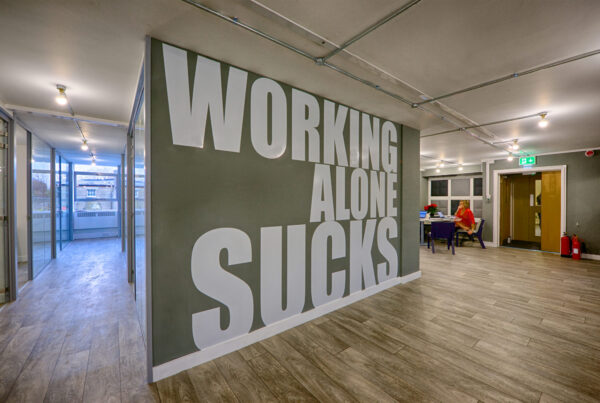The benefits of flexible working for businesses: How to implement flexible work spaces
In today’s dynamic work environment, the benefits of flexible working for businesses are increasingly recognised. Leading companies, such as Twitter, Apple, and HSBC, are embracing this trend, and businesses across the UK – whether small or large – are realising the advantages of offering employees greater flexibility. By maintaining a focus on employee satisfaction, businesses are seeing an uptick in productivity, which is the key to a thriving workforce.
What is flexible working?
Flexible working allows employees to have a say in their working hours, location, and work style. For many businesses, this means combining remote working with occasional office days. This hybrid model offers the best of both worlds, allowing companies to retain the benefits of in-person collaboration while supporting employees in maintaining a healthy work-life balance.
The true appeal of flexible working is its adaptability. There’s no one-size-fits-all approach; some employees thrive by working from home for part of the week, while others prefer a more traditional office setting. Common arrangements include hot desking, booking meeting rooms on an ad-hoc basis, and the increasingly popular flexible office spaces. These spaces offer the flexibility to use an office two to three times a month, perfect for team meetings or training days. This model ensures a balance of in-office communication with the freedom for employees to manage their time more effectively.
Why flexible working works
The benefits of flexible working for businesses go beyond just convenience. Flexible coworking spaces foster an environment where employees can connect with professionals from different industries, which enhances creativity and collaboration. Networking opportunities abound, with many coworking spaces hosting events to facilitate interaction between businesses and entrepreneurs.
While remote work can often lead to feelings of isolation, especially for freelancers, coworking spaces combat this by offering an opportunity to engage in face-to-face interactions. A simple greeting or a shared coffee break can have a positive impact on an employee’s sense of belonging. A recent study even showed that 35% of employees would prefer flexible working options over a pay rise, making this arrangement an attractive and cost-effective option for employers. Moreover, flexible office spaces can be far more affordable than traditional office leases, allowing businesses to pay only for what they need, whether it’s a few days a month or an occasional meeting space.
Implementing flexible working solutions
Adopting flexible working arrangements within a business can be straightforward with the right approach. The benefits of flexible working for businesses are evident when companies implement solutions tailored to the needs of their employees. Open communication is key, and businesses should start by gathering feedback to understand what their team requires. Once you have a clear understanding, developing a flexible working policy will help employees know what options are available, as well as the process for accessing them.
Considerations such as core hours, responsibilities, and additional support must also be addressed. Establishing clear guidelines from the outset ensures that everyone is on the same page. As with any major shift, it’s a good idea to pilot flexible working options to test their effectiveness. Allowing employees to experiment with different schedules or office days will give valuable insights into what works best for the team.
Flexible working is most effective when employees are evaluated on the quality of their output rather than the number of hours worked. Regular performance reviews are essential in ensuring that the flexible working model continues to meet the needs of both the business and its employees. As needs and preferences evolve, it’s important to review and adjust the model accordingly.
Flexible working near you
As businesses increasingly seek more adaptable work arrangements, we have responded by launching new products to meet the growing demand for flexible workspaces. Our ‘Flexi Office Space’ model allows businesses to hire office space for occasional use, whether that’s for a few days a month or a single day for team meetings. This flexibility is ideal for companies embracing remote work but still requiring in-person collaboration from time to time.
With locations across the south-east, we offer businesses access to shared, flexible office spaces without long-term commitments. Our coworking environments provide businesses, freelancers, and local networking groups the opportunity to thrive in a collaborative space, all without being tied to rigid terms.
For more information about the benefits of flexible working for businesses and how our flexible office spaces can support your team’s needs, please email us [email protected].





